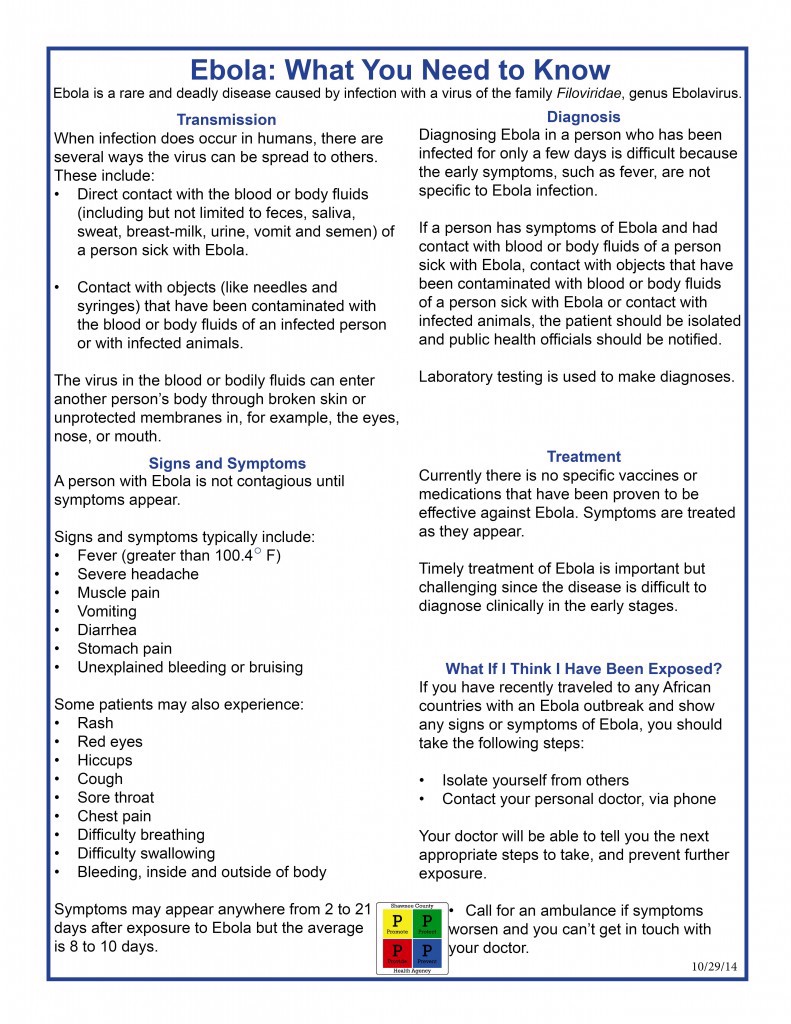Ebola: What You Need to Know
Sensational media headlines can be very scary to read. Sound-bytes, commentary and photos are used to keep the viewer's attention. But are those news outlets providing you with useful and accurate information?
- Consider the source--Use recognized authorities
- Focus on quality--All websites are not created equal
- Be a cyberskeptic--Quackery abounds on the web
- Look for the evidence--Rely on medical research, not opinion
- Check for currency--Look for the latest information
- Beware of bias-- Who is providing the funding?
- Protect your privacy--Health information should be confidential
Read The MedlinePlus Guide to Healthy Web Surfing for more details on these tips. It's my top recommendation for deciding whether the health information you are reading is trustworthy.
Community Information Session on Ebola Readiness
What is Ebola? How are we preparing in Shawnee County? The Shawnee County Health Agency staff members will answer those questions and present general information about the current Ebola situation. Local information can also be accessed by calling 211.
- 10/29/2014 - Additional community information sessions are being scheduled. Check back for updates.
In the headlines: Ebola
With the 24-hour-news-cycle focused on Ebola, the basic facts can be obscured behind a constant barrage of breaking news updates. Here's the basics, from local and national health authorities:
- Ebola: What You Need to Know updated October 2014 from the Shawnee County Health Agency.
- The Centers for Disease Control provides news updates on Ebola. MedlinePlus from the National Library of Medicine offers an overview of Ebola.
- Ebola Outbreak 2014: Information Resources from the Disaster Information Management Research Center (DIMRC) of the U.S. Department of Health and Human Services















